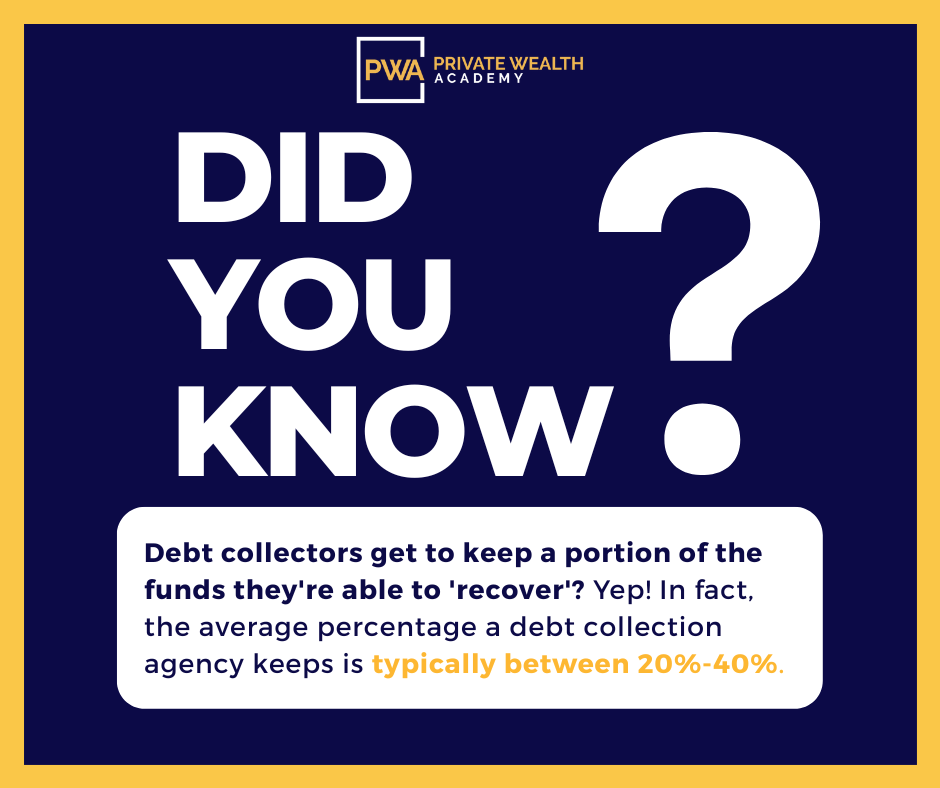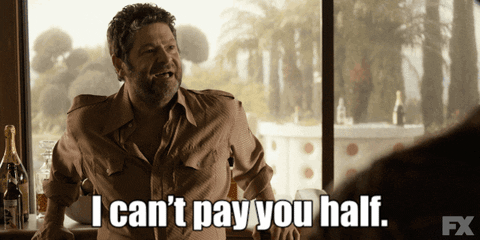Wonder how to get out of paying a debt collector?
Did you know debt collectors earn a percentage of the debts they’re able to ‘recover’?
It true. And that’s why some agencies hound people so hard…

Unfortunately, many debt collectors take unfair (sometimes illegal) advantage of debtors because many debtors lack basic knowledge about their rights. To avoid falling for collectors’ traps, it’s best to review the Fair Debt Collection Practices Act.
How to Get Out of Paying a Debt Collector:
Here are 8 Facts Debt Collectors Don’t Want You to Know…
1. You’re Not Obligated to Communicate
Tired of receiving the phone calls and letters from pushy collection representatives urging you to pay or else?
You can stop those companies dead in their tracks by starting the debt removal process & sending off your validation request.
When a debt collector initially calls, you can ignore it if you wish, but as we’ve mentioned before – pay special attention when the first letter arrives (that’s when the 30day clock starts)
In the event that a debt collector reaches out to you before the investigation is complete or starts to harass you about the outstanding balance, they may be in violation of the FDCPA. You can file a complaint with the attorney general’s office in your state, the Federal Trade Commission or the Consumer Financial Protection Bureau.
2. You Don’t Have to Disclose Personal Info
There is no law mandating the disclosure of identifying information, such as your Social Security number and your date of birth, to debt collectors.
3. Paying Off an Account Won’t Erase It from Reports
That account in collections will remain on your credit reports for seven years even if you pay it in full.
However, when you negotiate with the collections agency to remove the debt – they MUST contact the credit reporting agencies and have the account removed.
It may interest you to know that even when settling (either by full or partial payment), you can ask that they have the debt removed from your credit reports. If they agree, make sure you have that in writing from them before you pay.
4. Not ALL of Your Assets are at Risk (Yet)
During the collection process, the representatives are allowed to bug you, with limits, in an effort to collect on the delinquent account.
That doesn’t apply to all debt though. For example, the federal government does not need a court order to garnish your wages for student loan debt.
The rule also doesn’t apply when you fall behind on your mortgage or car loan. In some states, no court action is required to foreclose on a house. And the repo man doesn’t need a court order to take your car.
5. Paying the Entire Sum – Not Required
The debt collector wants the largest possible amount it can get from you to increase their earnings. But you may be able to set up a payment plan that fits within your budget.
Debt collectors typically buy debt for pennies on the dollar so always start your settlement offer low, maybe 25 cents on the dollar. Say something like “I have $200 that I can apply toward this debt. Will you accept that as payment in full?” If they say no, ask what they’re willing to accept as a settlement and negotiate from there.
Just remember that the collector is not legally required to agree to a payment plan, however you can still ask.
6. Negotiate the Best Deal End of the Month
Most agencies go on a calendar month schedule. The end of the month is when collectors’ bonuses are determined. In addition to the increased threats made because they were under pressure to make their quotas, that’s also the best time to get a deal because they’re under pressure to bring in the money quickly so they’re more likely to settle.

7. Try to Work with The Original Creditor
In some instances, the original creditor will be willing to work with you to collect the amount owed. However, if it has already sold the account to a third-party debt collector and charged it off in the books, you’re left with only one option: to work with the debt collectors.
Here’s How to Get Out of Paying a Debt Collector Another Way…
8. You Can Get Off The Hook 100%
Debt collectors won’t tell you this, but not only do you have the ability to completely erase the debt. You should check whether the debt has passed the statute of limitations in your state…
Once the statute of limitations on debt in your state has lapsed, you’re off the hook (sort of), they can’t sue you or put it in your credit report. Although that likely won’t stop them from trying to collect the money…
Keep in mind that after the statute of limitations expires, unless the debt has been removed, charged off or discharged in bankruptcy, you still legally owe the money.
In other words, the statute of limitations doesn’t wipe out the debt, it just reduces the legal remedies available to collect it.
Be aware, IF you make any kind of payment or even acknowledge the debt, that usually starts the statute of limitations clock all over again.
Never fess up or pay anything until you have confirmed the validity of the debt and authenticity of the collection agency.
The more of your rights that you know – the more you can stand up for yourself. You’ve got the POWER…
And now you know the solution.
If you’re ready to ERASE THE DEBT and get the negative account taken off your credit reports…
NOW is the time to get Debt Removal Secrets
Ever wonder what the difference is between debt consolidation, debt management, debt settlements and debt removal? Be sure to keep an eye out for tomorrow’s post we’ll dive into that and so much more.
Your friends in finance,
Private Wealth Academy
Leave a Reply
You must be logged in to post a comment.